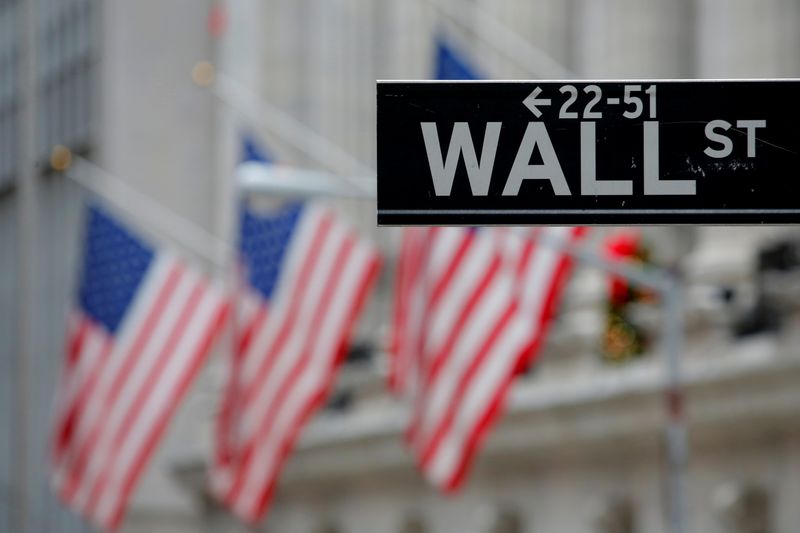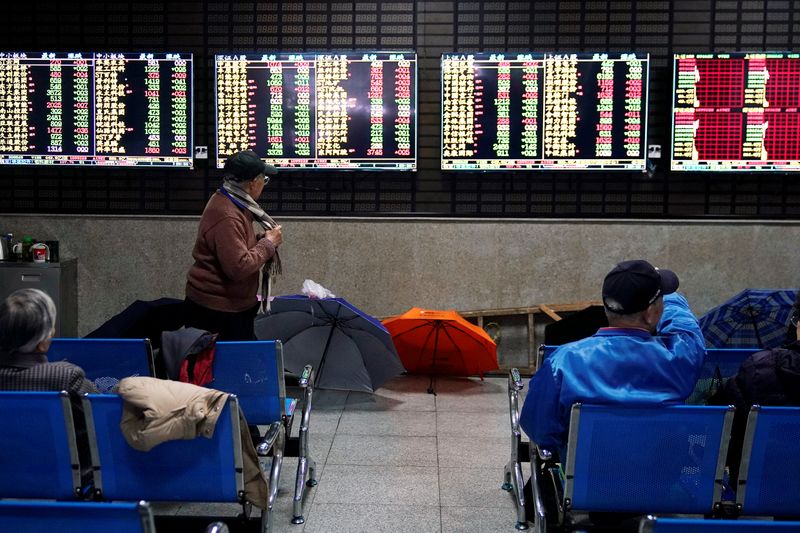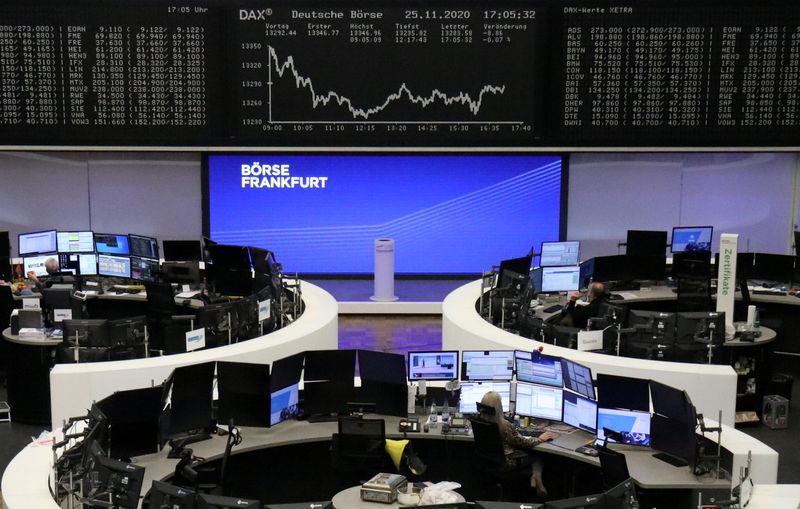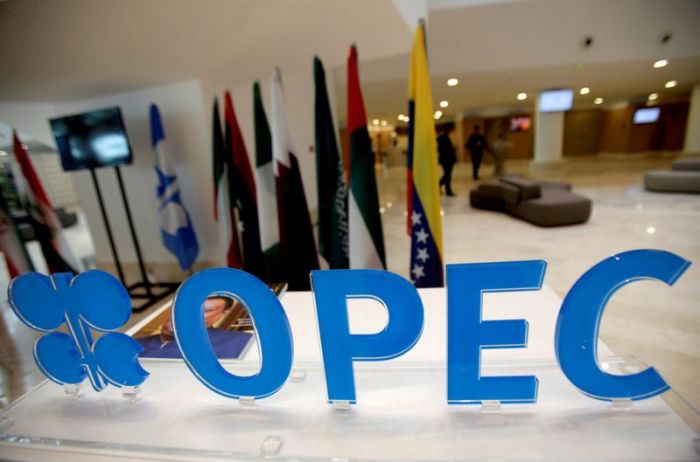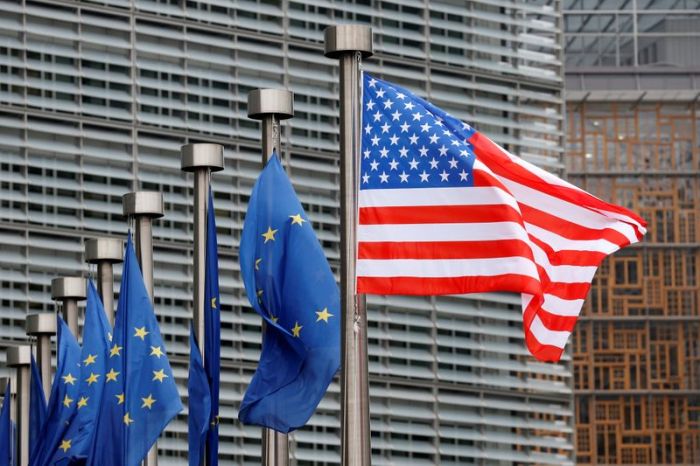NEW YORK (Reuters) – World stock markets dipped on Monday to close a record-breaking month as the prospect of a vaccine-driven economic recovery next year and further central bank stimulus measures eclipsed immediate concerns about the spiking coronavirus pandemic.
November’s record 12.6% leap added approximately $6.7 trillion – or $155 million a minute – to the value of world equities. [.EU] [.N]
At the same time, oil, industrial commodities and other risk assets have surged, with emerging-market currencies posting their largest gains in almost two years [EMRG/FRX] while safe-havens such as the dollar and gold slipped.
“It has been a very, very strong month for markets, especially on the equity side but also on the fixed income side too,” said Elwin de Groot, Rabobank’s head of macro strategy.
The positive developments on vaccines and the swiftness with which they are likely to be rolled out have been key drivers.
“This market still remains very much supported by liquidity from the central banks,” De Groot said. With the European Central Bank set to provide more stimulus next month, “the market view seems to be, ‘What can possibly go wrong?'”
MSCI’s gauge of stocks across the globe shed 0.94% following broad declines in Asia and Europe. Many European markets wrapped up their best month ever, with France up 21% and Italy almost 26%. The Nikkei’s 15% leap in Japan was its best month since 1994. [.T]
On Wall Street, the Dow Jones Industrial Average fell 271.73 points, or 0.91%, to 29,638.64, the S&P 500 lost 16.72 points, or 0.46%, to 3,621.63 and the Nasdaq Composite dropped 7.11 points, or 0.06%, to 12,198.74.
“Markets are overbought and at risk of a short-term pause,” said Shane Oliver, head of investment strategy at AMP Capital.
“However, we are now in a seasonally strong time of year and investors are yet to fully discount the potential for a very strong recovery next year in growth and profits as stimulus combines with vaccines.”
The surge in stocks has put competitive pressure on safe-haven bonds, but much of that has been cushioned by expectations of more asset buying by central banks.
U.S. benchmark 10-year Treasury notes last fell 2/32 in price to yield 0.8471%, from 0.842% late on Friday.
A survey showing factory activity in China beat forecasts in November, while the country’s central bank surprised with an extra helping of cheap loans also boosted sentiment.
Moderna provided the regular Monday dose of vaccine news, saying it was applying for emergency-use authorization from the U.S. Food and Drug Administration and conditional approval from the European Union.
Federal Reserve Chair Jerome Powell testifies to Congress on Tuesday amid speculation of further policy action at the Fed’s next meeting in mid-December.
The dollar index rose 0.286%, climbing from lows last seen in mid-2018. [/FRX]
Spot gold dropped 0.7% to $1,776.24 an ounce. U.S. gold futures fell 0.38% to $1,775.10 an ounce.
Oil, in contrast, has benefited nearly 30% from the prospect of a revival in demand should vaccines allow travel and transport to resume next year.
Some profit-taking set in Monday ahead of an OPEC+ meeting to decide whether the producers’ group will extend large output cuts.
U.S. crude fell 0.81% to $45.16 per barrel and Brent was at $47.59, down 1.22% on the day.
(Reporting by David Randall; Editing by Jonathan Oatis, Dan Grebler and Aurora Ellis)

